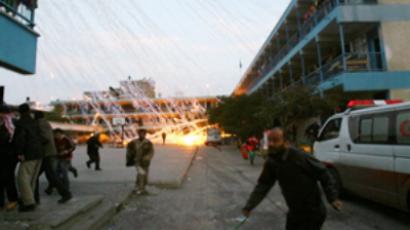US needs Afghanistan troop surge to win
The top US Commander in Afghanistan says the troop surge will help push back the Taliban, but the mission will be difficult. At the same time, Washington hopes to begin withdrawing troops within 18 months.
The cameras were flashing, but not for Britney or Paris. This time the celebrities were General Stanley McChrystal and US Ambassador to Afghanistan Karl Eikenberry – and they faced many questions.
“What is our strategy for helping the Afghans build political and economic order after we clear and hold ground? What is our strategy for supporting Afghan leaders in reforming and strengthening their government? What is our strategy for working with President Karzai?” asked US Senator John McCain.
And some in the audience thought they already had all the answers.
“I’m very disappointed, I think the surge is a big mistake and the American people don’t support this and there really is no military answer to this problem in Afghanistan,” said an anti-war activist.
Those very same sentiments were apparently echoed by Eikenberry himself, before he decided to support Obama’s troop increase.
“Ambassador Eikenberry, during the decision-making process there were several cables that you sent back that indicated you had strong reservations about the surge. Those reservations, been resolved in your mind?” McCain asked.
“Senator, 100 percent with the refinement of the mission,” was Eikenberry’s reply.
A mission that the officials seem to agree will end in victory.
“We are in this thing to win,” McCain said.
“We are going to win. We and the Afghan Government are going to win,” McChrystal added.
But even with confidence, comes the reality on the ground – not just in Afghanistan, but in Iraq as well.
Although winning seemed to be the recurring theme throughout the testimonies, its very definition is made more complicated by the fact that fresh attacks in Baghdad remind people that the US government must still create stability not just in one, but two war zones – a goal that may take much longer than expected.
“Afghanistan is going to need international commitment for many more years, so we continue to work hard to ensure that that’s a success,” Eikenberry said.
But perhaps the main question that still remains unanswered is: at what cost?














